May 17, 2025 | 15:03 GMT +7
May 17, 2025 | 15:03 GMT +7
Hotline: 0913.378.918
May 17, 2025 | 15:03 GMT +7
Hotline: 0913.378.918
The 4th Global Conference on Sustainable Food Systems starts today, April 24, in Hanoi. During four days, the Conference consisted of nine official sessions, ten side technical sessions, and a field visit. Also within the program's framework, the Night of Agriculture - Farmers - Rural Areas was held on the evening of April 26 to promote and introduce achievements, cultural characteristics, and customs of world agriculture, along with participating countries.
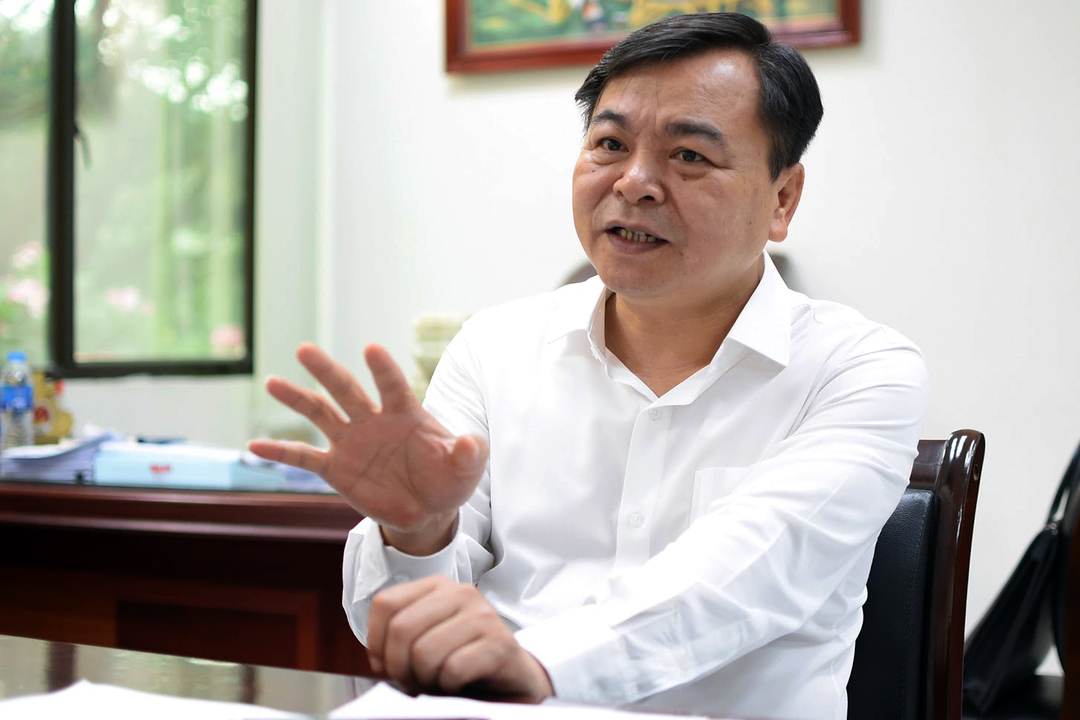
Deputy Minister Nguyen Hoang Hiep emphasized the necessity of food systems transformation. Photo: Tung Dinh.
Representing the Ministry of Agriculture and Rural Development (MARD) - the host of the fourth Global Conference on Sustainable Food Systems, Deputy Minister Nguyen Hoang Hiep said, "In recent years, the Government of Vietnam has always been deeply aware of the need for close coordination between countries and actors in the food systems to create far-reaching changes to the whole system". The Deputy Minister pointed out four main contents:
First, strengthen cooperation at all levels and sectors to recover from the pandemic and crises. This includes the critical role of digital technology and innovation to increase efficiency in production, food safety, and food distribution while connecting producers directly with consumers, reducing food loss and waste, promoting fair and sustainable agricultural trade, creating higher resilience for the agricultural supply chain.
Second, promoting a food-based system approach. This will create change, not only addressing food insecurity and poverty but also empowering women, addressing environmental challenges such as climate change, reducing malnutrition, and supporting economic growth.
Third, propagate and promote green and sustainable consumption. This is an inevitable and fast-growing trend worldwide as consumers' awareness is increasingly enhanced. Countries and organizations must therefore deploy and apply green consumption policies to protect the environment and public health, aiming towards sustainable development.
Fourth, promote coordination and information sharing in sustainable management of natural resources such as land, biodiversity, forests, and water resources. The focus includes the management of transboundary water resource and marine resources, promoting the South-South Cooperation with the support of the international donor community.
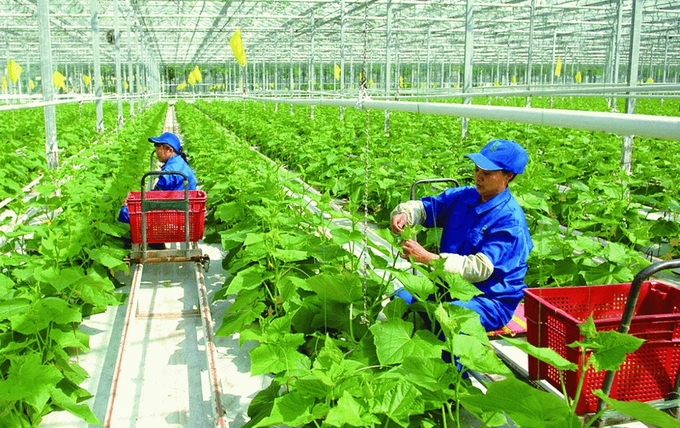
More and more countries are interested in green production and green consumption. Photo: Tung Dinh.
According to the FAO report, hunger is still on the rise and the number of people affected by this problem has reached 828 million in 2021, an increase of approximately 46 million from 2020 and 150 million from 2019. Up to 3.1 billion people in the world still cannot afford a healthy diet, approximately 144 million children under 5 years old suffer from malnourishment, micronutrient deficient, growth retardation or overweight and obesity.
Deputy Minister Nguyen Hoang Hiep also mentioned "new crises" humanity may have to face. These are climate change impacts, biodiversity loss, Covid-19 and emerging diseases, conflicts in the prices of food products, animal feed, fuels, fertilizers, and finance.
The Ministry of Agriculture and Rural Development is proposing to the Prime Minister the establishment of a "Center for Food Innovation" to expand cooperation in research and policy development and promote the replication of green, eco-friendly models with low emission and sustainably.
After the United Nations Food Safety Summit in September 2021, Vietnam aims to become a transparent - responsible - sustainable food producer and supplier, meeting food security requirements and nutrition of about 100 million people in Vietnam and contributing to world food security.
Deputy Minister Nguyen Hoang Hiep expressed that the upcoming Global Conference is an opportunity for Vietnam to share with international friends the "National Action Plan to transform transparent, responsible, and sustainable food systems by 2030" has just been issued by the Prime Minister following Decision No. 300/QD-TTg dated March 28. Along with that, there are plans to implement the net zero emissions commitment by 2050 and two other obligations closely related to the agricultural sector: Join the "Reducing global methane emissions" initiative, and Implementation of the "Glasgow Declaration on Forests and Land Use".
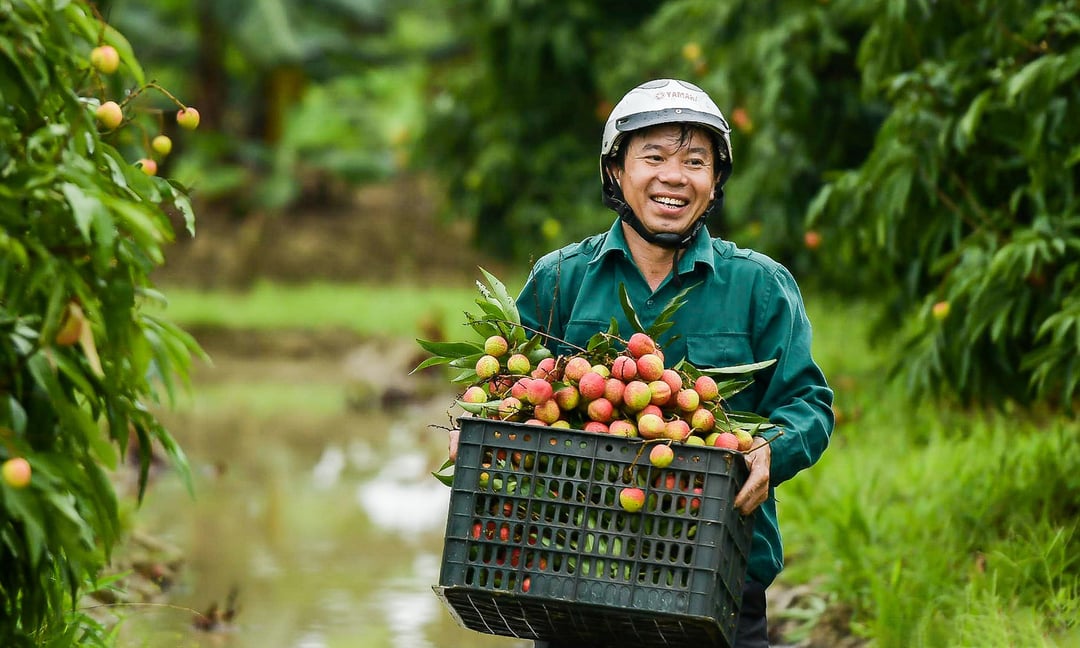
Vietnam has many world-famous agricultural products, known to many international friends. Photo: Tung Dinh.
These views are clearly expressed in the "Strategy for sustainable agricultural and rural development for the period 2021 - 2030, vision to 2050". The plan for "Reducing methane emissions in the agricultural sector to 2030" is also being implemented by the MARD. The Ministry has issued the Action Plan to implement the National Green Growth Strategy for the period 2021-2030 and the Plan for the digital transformation of agriculture and rural development in the period 2022 - 2025, which aims to promote the application of digital technology to build sustainable agricultural product value chains, towards traceability, food safety, standardization of style and quality.
Through the Global Conference on Sustainable Food Systems, Vietnam will have the opportunity to promote the image of the country, its people, the role and responsibility of Vietnamese agriculture to global issues, and promote fair and sustainable trade in agricultural products.
The Ministry of Agriculture and Rural Development is coordinating to development of the "Program of 1 million hectares of high-quality and low-emission rice" and implementing the "Emissions reduction payment agreement in the North Central region". In addition, the pilot program to calculate the carbon footprint for rice, coffee, dragon fruit, and shrimp chains is also interesting by the Ministry, implemented with UNDP, FAO, UNIDO, and the Consultative Group for International Agricultural Research (CGIAR).
Translated by Ha Phuc
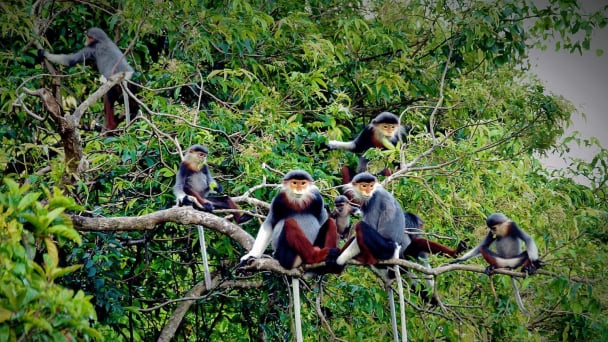
(VAN) The United Nations designated 22 May as the International Day for Biodiversity 2025 with the theme 'Harmony with nature and sustainable development.'
![Multi-channel, multi-directional Vietnamese agricultural markets: [8] A national strategy is needed](https://t.ex-cdn.com/nongnghiepmoitruong.vn/608w/files/phucpm/2025/05/15/1435-thi-truong-nong-san-viet-da-kenh-da-huongbai-8-can-mot-chien-luoc-quoc-gia-084750_728.jpg)
(VAN) The Chairman of Hung Nhon Group shared: ‘Opening up and tapping into new markets is the right and strategic direction for Vietnam's agricultural sector.’
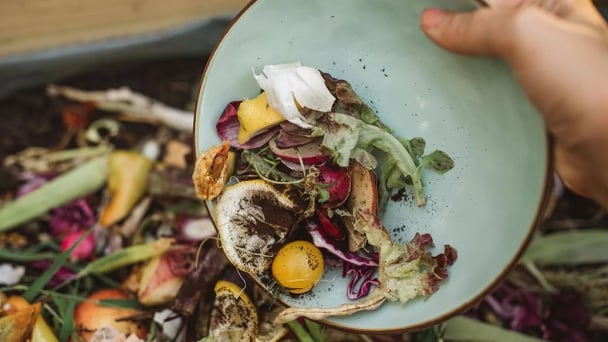
(VAN) Food waste has become a serious issue in modern society, especially in rapidly urbanizing and developing cities like Hanoi.
![Multi-channel, multi-directional Vietnamese agricultural markets: [7] Deep processing makes global reach easy](https://t.ex-cdn.com/nongnghiepmoitruong.vn/608w/files/huytd/2025/05/16/2946-che-bien-sau-chia-khoa-vang-nang-tam-nong-san-viet-tren-ban-do-the-gioi-080603_110-093858.jpg)
(VAN) The application of deep processing technology is helping Vietnamese agricultural products enhance their value, create competitive advantages, and open doors to conquer global consumers.
![Multi-channel, multi-directional Vietnamese agricultural markets: [6] Agri products go online](https://t.ex-cdn.com/nongnghiepmoitruong.vn/608w/files/content/2024/12/10/1-113313_954.jpg)
(VAN) Bringing agri products onto e-commerce platforms is an effective way to build a brand that many businesses, cooperatives, and agricultural production households are doing.

(VAN) Veterinary training should focus on quality, not just quantity. Veterinarians also need more options to pursue specialized training.

(VAN) The veterinary industry needs to be viewed objectively and further invested in to properly demonstrate its role and importance in the new context.